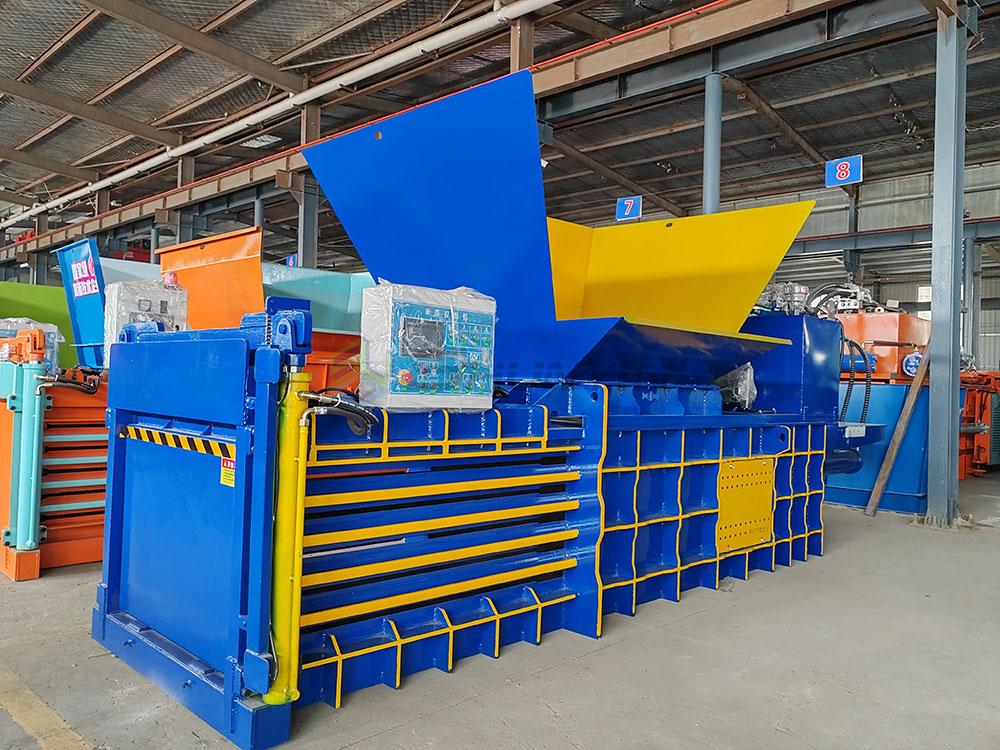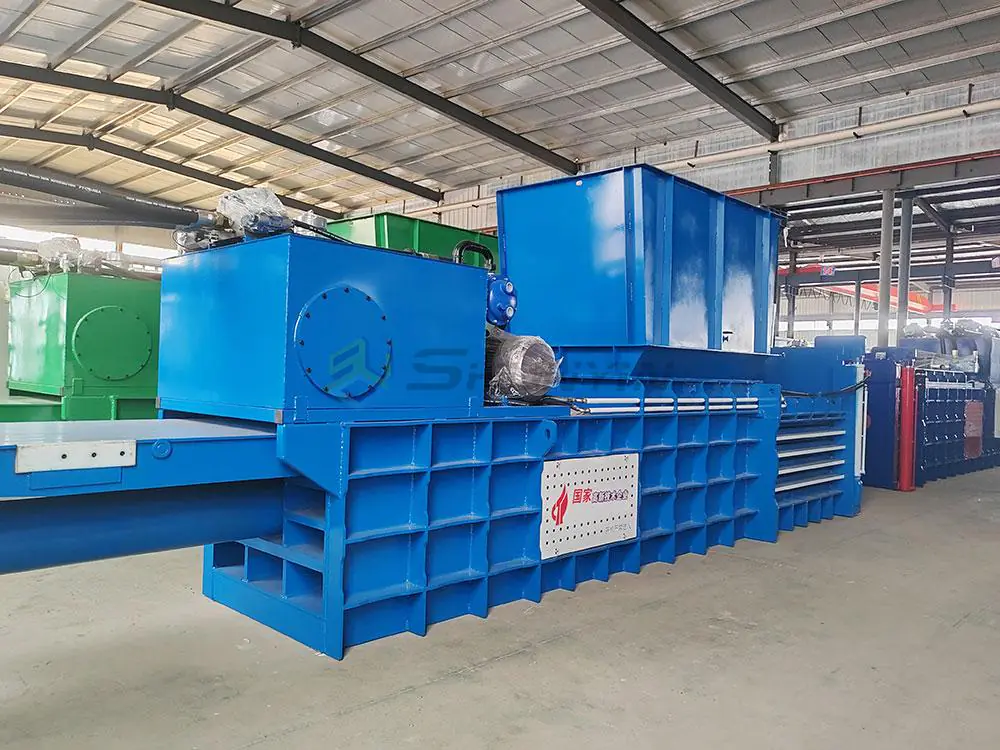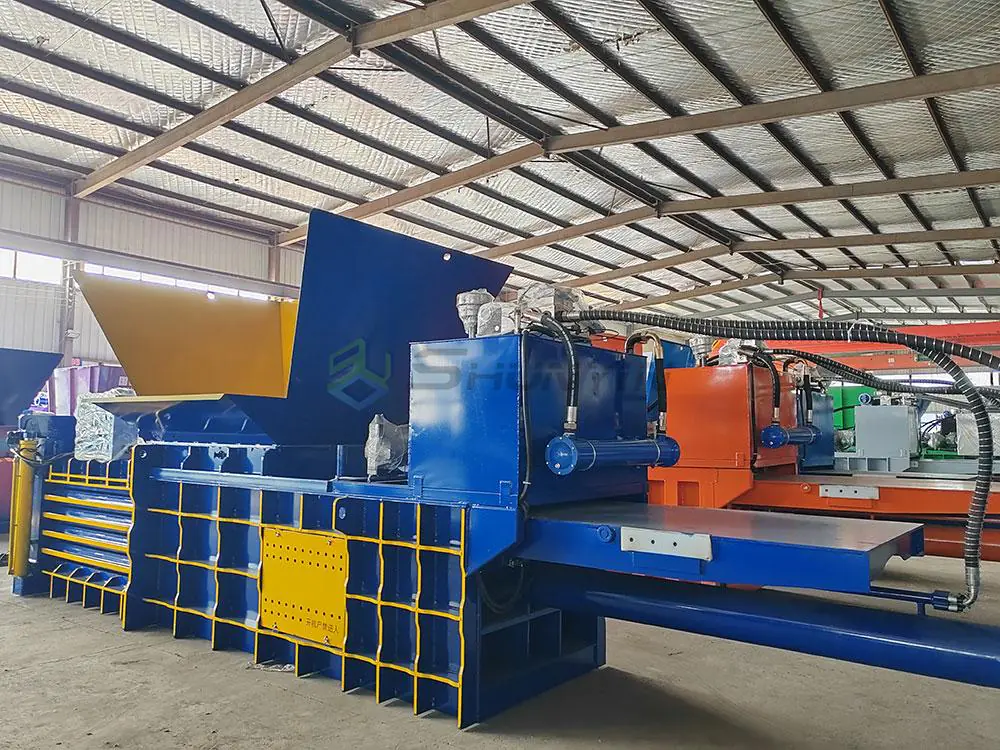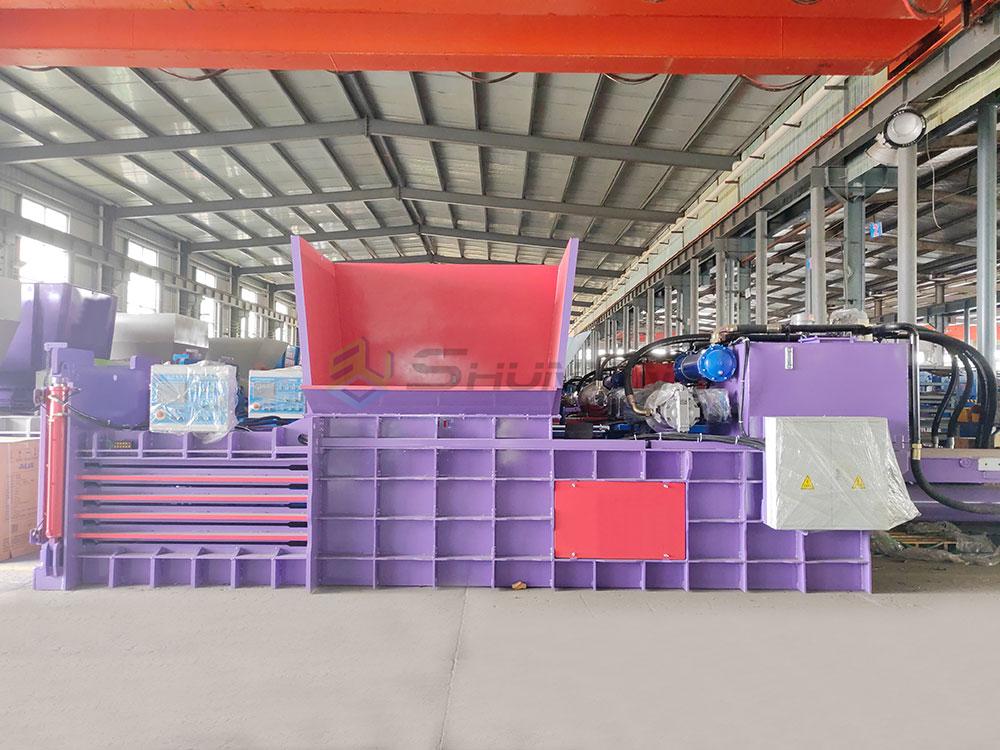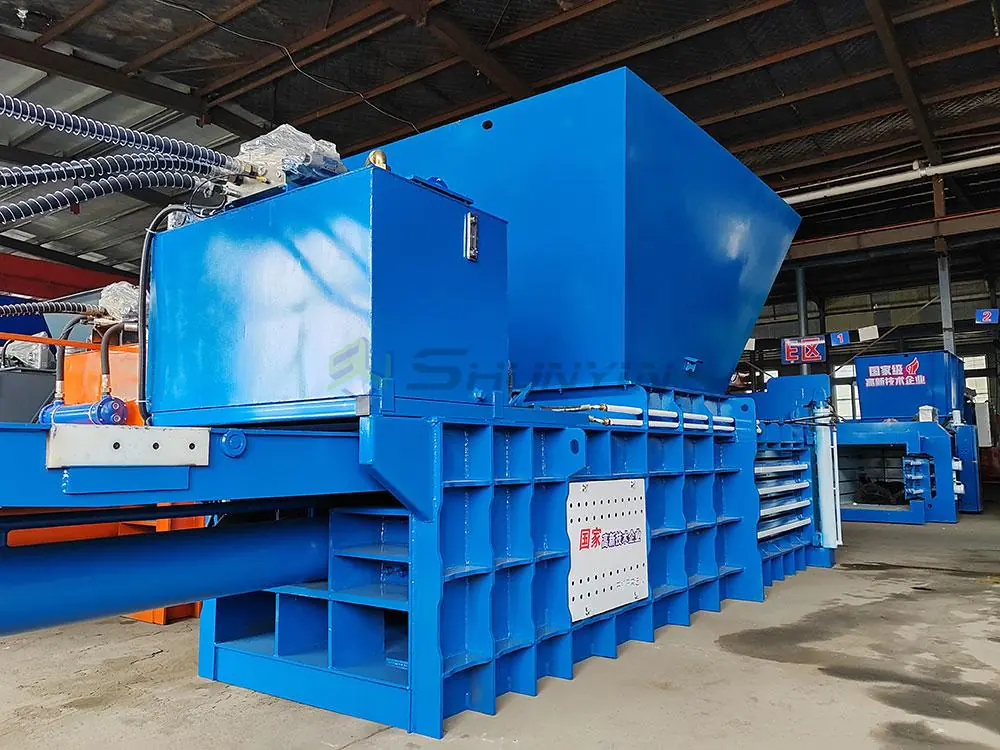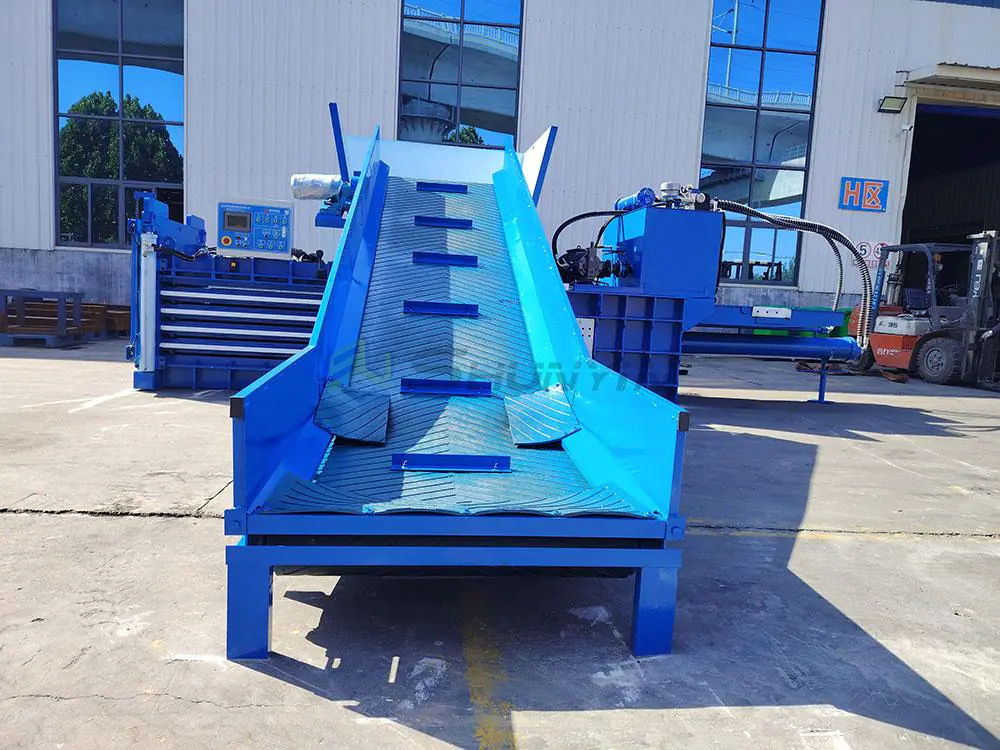Waste piles eating profits? Contamination woes? Proper baling transforms plastic headaches into revenue overnight.
Balers compress plastic waste into dense, transport-ready bales using hydraulic pressure, enabling efficient recycling – sort materials by type, operate temperature-controlled cycles, and achieve 10:1 volume reduction for maximum resale value and environmental compliance.

Lambert recovered $12K monthly after we reconfigured his system. Discover your profit pathway today.
How Do You Bale Plastic Efficiently?
Struggling with slow processing? Japanese facilities doubled speed after optimizing these methods.
Effective plastic baling requires sorting PET/LDPE/HDPE, pre-shredding bulky items, maintaining 70-90℃ chamber temps, applying progressive pressure cycles, and securing bales with auto-tie systems – our SY-PET Series achieves consistent 800kg bales with just 15-minute cycles.

Optimized compression techniques
Canadian processors gained 40% density after retraining staff.
Material-specific settings
| Plastic Type | Force Required | Cycle Time | Temperature | Density Target |
|---|---|---|---|---|
| PET bottles | 120-150 tons | 12-20 min | 85℃ | 720kg/m³ |
| LDPE film | 50-70 tons | 8-15 min | 75℃ | 550kg/m³ |
| HDPE scraps | 140-180 tons | 15-25 min | 90℃ | 820kg/m³ |
| Mixed plastic | 90-110 tons | 20-30 min | 80℃ | 650kg/m³ |
Lambert eliminated rejects completely. Get settings cheat sheet
Four critical success factors
- Contamination control: <5% non-target material
- Moisture management: Below 8% humidity
- Ram speed calibration: Slow-compression phase
- Heating uniformity: Zone-controlled platens
Our models include sensor feedback. Request demo data
What’s the Most Profitable Way to Process Plastic Waste?
Frustrated with landfill fees? Singapore recyclers turned waste into 35% profit center.
Horizontal balers with heated platens process plastic waste into high-density commodity bales – creating new revenue streams through polymer recovery while eliminating disposal costs, transport inefficiencies, and storage headaches across manufacturing ecosystems.

Waste-to-wealth monetization
North American plants earned $18K/ton premium with certified processing.
Baled plastic global values
| Plastic Category | Loose Value ($/ton) | Baled Value ($/ton) | Profit Gain | Export Premium |
|---|---|---|---|---|
| Clear PET | $80 | $280 | 250% | +$40-60 |
| HDPE Milk Jugs | $120 | $410 | 240% | +$55 |
| LDPE Film | $50 | $230 | 360% | +$30 |
| Mixed Rigid | $35 | $160 | 350% | Spot pricing |
Lambert secured Japanese contracts effortlessly. Download pricing guide
Maximizing recovery rates
- Automated sorting: Optical scanners identify resin types
- Density optimization: Achieving >0.8g/cm³ targets
- Certification compliance: International recycling standards (R2/RIOS)
Our systems meet all ISO certifications. Verify credentials
How Can You Responsibly Discard Plastic for Maximum Value?
Toxic byproducts concern? Tokyo corporations reduced environmental fines 90% with ethical processing.
Responsible disposal requires volume-reducing balers that enable traceable recycling streams – our three-step system prevents ocean pollution and incineration risks while converting waste to certified circular economy inputs with premium green premiums.

Sustainable disposal framework
Singapore facilities achieved zero-landfill status in 18 months.
Traditional vs baling disposal costs
| Disposal Method | Cost per Ton | Revenue Generated | Carbon Footprint | Legal Risk |
|---|---|---|---|---|
| Landfill | $150 | $0 | High | Regulatory fines |
| Incineration | $220 | $0 | Extreme | Community backlash |
| Export loose | $90 | $40 | Medium | Customs rejections |
| Baled recycling | $65 | $120-280 | Low ** | Green incentives |
Lambert qualified for tax credits. Calculate savings
Ethical processing checklist
- Material traceability: Blockchain documentation
- Emissions control: VOC capture systems
- Downstream verification: Certified partner network
- Resource recovery: >92% input utilization
Our SY-Eco series includes full tracking. Audit our process
Conclusion
Efficient plastic baling transforms disposal costs into profits through optimized compression, certified recycling streams, and premium-priced bales while ensuring environmental responsibility.


